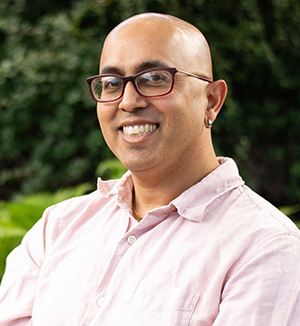 As last month’s devastating wildfires raged in Los Angeles, the city’s residents faced a barrage of falsehoods on social media along with erroneous evacuation alerts from official sources. In search of timely, accurate information, millions turned to Watch Duty, a free and nonprofit app that tracks wildfires and firefighting efforts. The app shot to the top of the charts on Apple and Android stores.
As last month’s devastating wildfires raged in Los Angeles, the city’s residents faced a barrage of falsehoods on social media along with erroneous evacuation alerts from official sources. In search of timely, accurate information, millions turned to Watch Duty, a free and nonprofit app that tracks wildfires and firefighting efforts. The app shot to the top of the charts on Apple and Android stores.
In a public emergency, in the corporate world, or in our day-to-day lives, people need quality information to make decisions. That underpins what we teach across all our programs at the Information School. Our graduates cultivate the skills to wield information and the commitment to use those skills to serve others, particularly from underrepresented and underresourced communities.
Natural disasters and global political upheaval can threaten our cultural artifacts — troves of knowledge can be destroyed in the blink of an eye. The 2023 Lahaina fire severely damaged the town’s historic district and destroyed many pieces of Hawaiian culture, including libraries and museums. Wars have led to the destruction of hundreds of holy sites in the Middle East. Policy changes, too, can pose a threat to the preservation of a precious modern resource: our data.
With that in mind, CALMA, the new iSchool-based Center for Advancement of Libraries, Museums and Archives, recently took part in nationwide efforts to preserve publicly available data about the climate crisis. Ph.D. candidates Itza Carbajal and Sarah Nguyễn led two “data rescue” events in January to ensure that even when government websites change, climate science data remains available so the public can prepare for and respond to environmental disasters. Such digital storage and recovery efforts can help us protect not only information artifacts, but cultural ones. Many rural communities are particularly vulnerable to natural disasters, and digitizing their historic artifacts can help ensure that even if items are lost, they are more than just a memory.
The need for information science skills in the workforce will only grow in the coming years. As the effects of climate change continue to spread, more natural disasters will spark more crises, and marginalized people will bear an outsized burden. Meanwhile, our social media channels are becoming less safe and more prone to rumors as major platforms keep removing their guardrails. And traditional media are struggling with low credibility among large segments of the population.
Our students and alumni are equipped to fight these headwinds. Informatics students learn to imagine more usable, trustworthy and equitable information systems. Our Information Management graduate program infuses socially conscious thinking as students build their technical and leadership skills. Master’s students in Library and Information Science and Museology learn to organize and preserve knowledge and to be sources of accurate information for anyone who seeks it.
Most graduates stay in our state, bringing their blend of technological skills as well as critical thinking and communication skills to their employers. In the corporate world, they help Washington-based companies such as Amazon, Zillow and Expedia thrive by delivering the right information to people at the right time. In libraries, museums, nonprofits and elsewhere in the public and private sectors, they are defenders of free speech and guardians of public and private data. In their communities, many become advocates for those who are most vulnerable and likely to be left behind.
Many students are drawn to the Information School because they want to help others. As alumni, they have the skills to help harness the strength and resilience of communities in times of crisis.
Anind K. Dey
Dean and Professor
Winter 2025